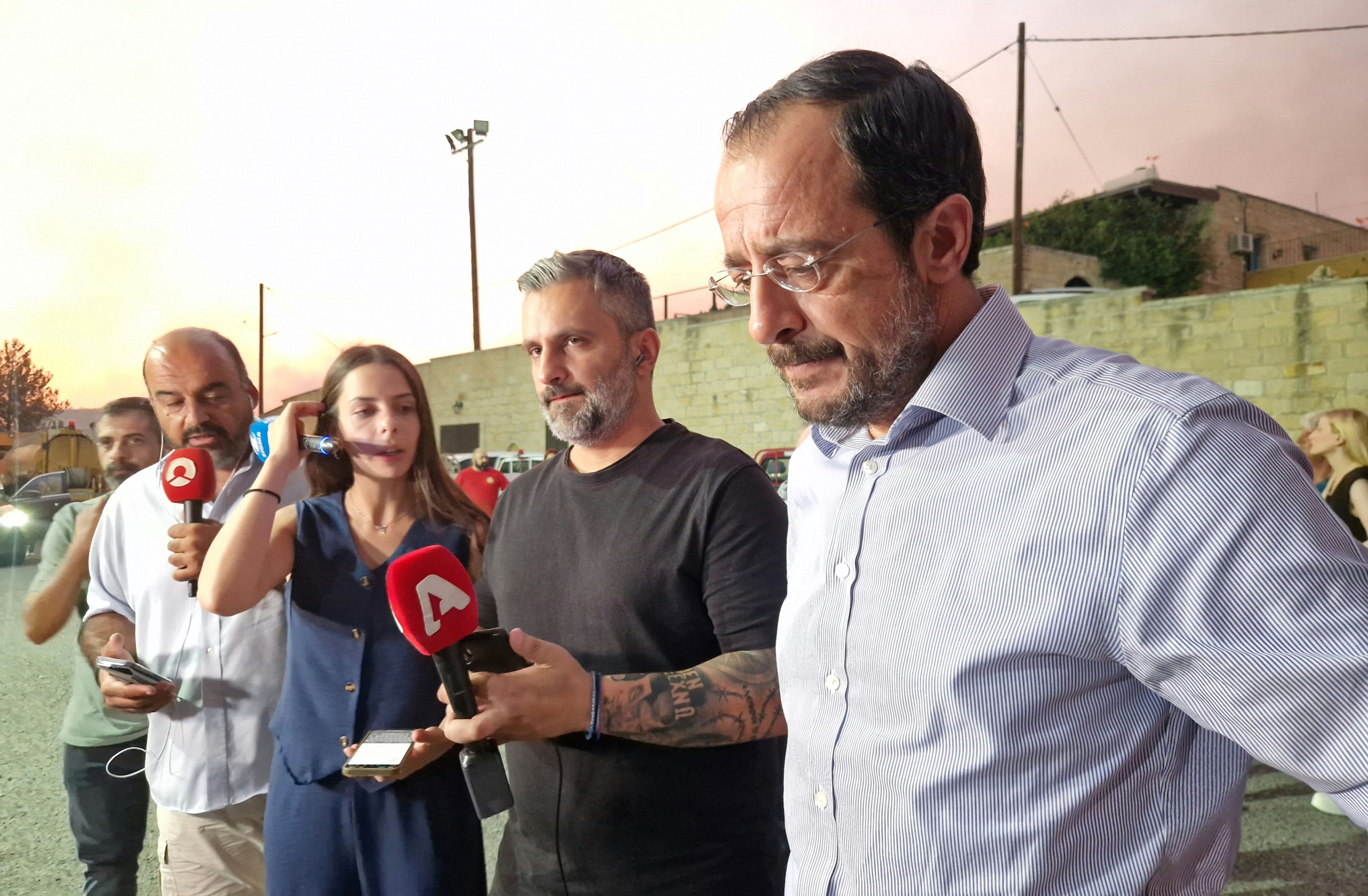President Nikos Christodoulides on Thursday cancelled his planned meeting with Egypt’s Petroleum Minister Karim Badawi in light of a deadly wildfire which was raging in the Limassol district on Thursday morning.
Badawi had been set to meet Christodoulides at 9.30am at the presidential palace in Nicosia, before later meeting Energy Minister George Papanastasiou and representatives from energy companies Eni and Total, of Italy and France respectively.
Christodoulides’ meeting with Badawi was due to come off the back of the start of seabed surveys to find a sinking point for the pipeline which will take natural gas from Cyprus’ exclusive economic zone (EEZ) to Egypt for liquefaction.
That pipeline will connect Block 12, the southernmost block of Cyprus’ EEZ which contains the Aphrodite deposit, to Egypt.
That development came after the governments of Cyprus and Egypt, as well as American multinational corporation Chevron, Israeli energy company NewMed Energy, and the BG Group, which is owned by Royal Dutch Shell, signed an agreement which, according to the Cypriot government, established “the framework for the effective commercialisation” of the gas in the field.
At the same time, the two countries signed an agreement with the consortium comprising French multinational corporation Total and Italian energy company Eni concerning Block 6 of Cyprus’ EEZ.
This agreement sets Egypt as the “host government” for Block 6 and the Kronos, Zeus and Kalypso gas fields which are present under its seabed, meaning that the gas extracted will be sent to the Segas liquefied natural gas (LNG) terminal in the Egyptian port city of Damietta for liquefaction.
Given the proximity of the Kronos reservoir and Block 6 to Egypt’s ‘Zohr’ gas field, which Eni also operates, Eni will be able to use its own infrastructure to take the Cypriot natural gas to Damietta.
The Cypriot government said the agreements’ “essence is not limited only to promoting the exploitation of the deposits but also broadens the prospects for energy cooperation with Egypt, while contributing to regional stability and strengthening our country’s geopolitical position in the eastern Mediterranean”.
“These two agreements signal the Republic of Cyprus’ determination to promote the sustainable exploitation of its natural resources, with the participation of renowned international energy partners, to strengthen its role as an energy hub in the eastern Mediterranean and to ensure the maximum possible benefit for the Cypriot people,” it said.
It added that with these agreements, it hopes to “achieve more competitive electricity prices and safeguard our country’s energy security”.
The “stagnation” regarding Block 12 had come about following disagreements between the Cypriot government and the State of Israel regarding the Aphrodite deposit.
Israel had said part of the gas in ‘Aphrodite’ field seeps into Israel’s EEZ, into a field called ‘Yishai’, with some estimates stating that up to 10 per cent of the field could be Israeli, meaning that over €1 billion could be at stake.
Papanastasiou had said earlier in the year that negotiations on the matter had “entered their final stage”.
“Our aim is to visit the neighbouring country to reach a conclusion and sign it,” he added.






Click here to change your cookie preferences